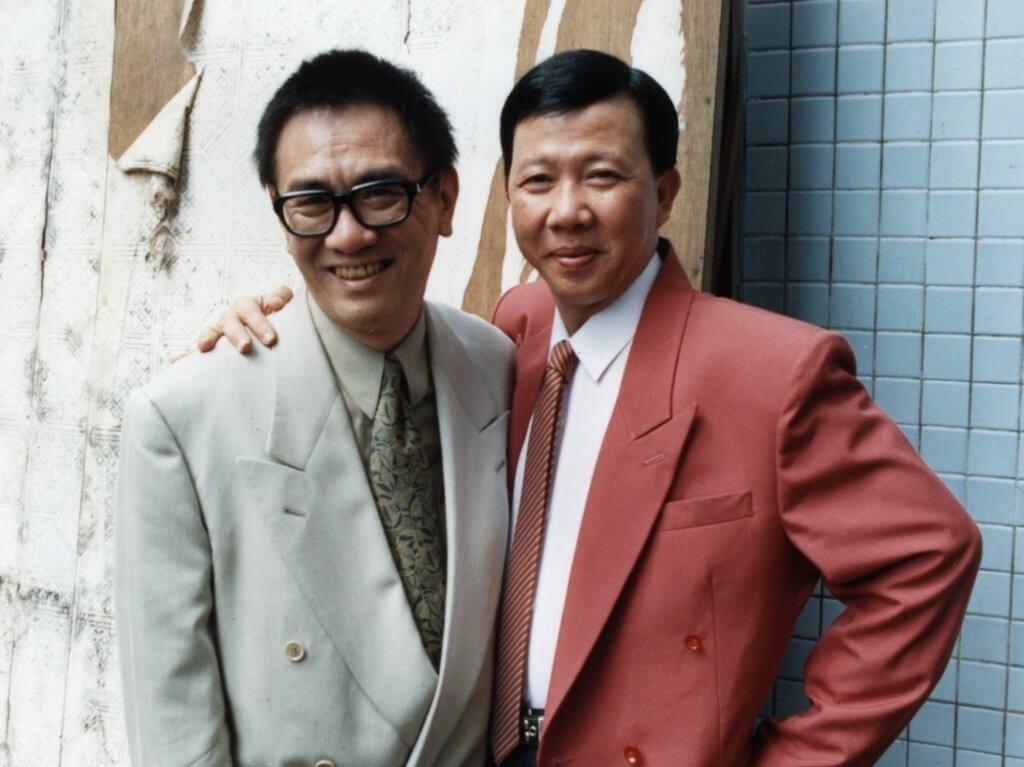Among the older generation of Hong Kong singers, although Xu Guanjie and Xu Xiaofeng are very well-known, there are still some singers who have left good memories for netizens after the 80s. Among these singers, there is a very special one, he was originally a rich second generation in Vietnam, he fled to Hong Kong due to the war, but he did not expect to achieve a brilliant singing career, he is Yin Guang.

When I first heard the name "Yin Guang", many netizens may not be very familiar with it, but when it comes to Zhou Xingchi's movie "Truant Weilong", I believe that many people still remember it, and the song sung by Zhou Xingchi in the movie (no freedom, loss of freedom, sadness and tears) is Yin Guang's original song.
In addition, in "Family Has a Happy Event", Wu Junru also sang this song, so it is not difficult to guess the popularity of this song in that year, and it is precisely because of Zhou Xingchi's singing that Yin Guang was able to enter the memory of post-90s netizens.
In fact, in addition to this song "Red Tears in the Iron Window", Yin Guang also has many popular works, such as "Counting Hairs", "Hollywood Hotel", etc., but with the "crossing" of the times, few people now remember this former singer.
On March 15th, there was an interview with Yin Guang posted by the Hong Kong media, which allowed netizens to understand his different life experience again. It is reported that Yin Quang was originally a rich man in Vietnam, and his father had several theaters, an ice rink, several processing plants in the local area, and five to six servants in the family.
Because he had a theater, Yin Guang began to learn Cantonese opera when he was seven years old, and he was a scholar of literature and martial arts in the early days, and he was quite talented. However, at that time, there was war in Vietnam, and it was necessary to pull people's heads for military service.
In order to avoid danger, Yin Guang's father paid him to go to the military camp for training for three months, and when he came out and paid money, he could defend the city without going to the front line, during which some heavy weapons, Yin Guang had contact. After the training, Yin Guang was only 20 years old, which coincided with the fact that "smuggling" was not very dangerous at that time, so Yin Guang smuggled to Hong Kong.
After arriving in Hong Kong, Yin Guang thought about how to make a living, when his father entrusted a Shibo to take him to sing a big opera, but by that time Cantonese opera had already declined. So Yin Guang's brother suggested that he sing the era song, so Yin Guang stayed in the nightclub for several years.
However, Chinese song did not make Yin Guang famous, and in 74, Zheng Jinchang, the prince of Sin Chew, became popular in Hong Kong with the Cantonese song "Big Brother Tangshan". Seeing the development of "Cantonese", Yin Guang remembered to sing Cantonese songs, after all, he had specially studied it when he was young.
After his singing career was on track, Yin Guang became obsessed with gambling and once tried to lose hundreds of thousands (the value of a whole floor) in one night. Later, with the marriage and the birth of his son, Yin Guangcai successfully quit gambling, and his gambler mentality was also written into the lyrics. "There are nine gambling cards, thirteen more gambling cards, more playing mahjong, and more hoe brothers."
In the 1990s, Yin Guang began to dabble in Rap and collaborated with a number of younger singers (Farmer, MC Jin). Now 72 years old Yin Guang still looks old and strong, because his son has become a family and has children, so Yin Guang does not have any worries, leisure time husband and wife will drink afternoon tea with friends, very comfortable.